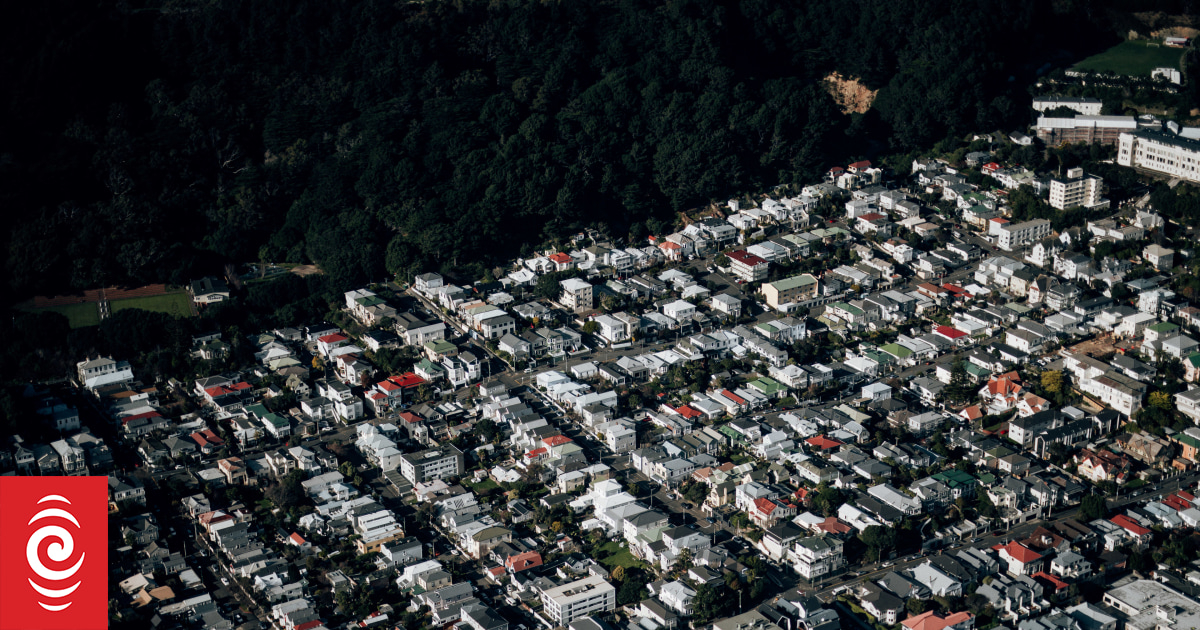
Photo: RNZ / Dom Thomas
A Wellington real estate salesperson who lost about $200,000 on a new build townhouse says a similar situation is being played out around the country.
Mike Robbers of Lowe & Co Realty told clients last week that he and partner Socheata had signed a contract for a three-bedroom Wellington investment property which was not yet built in 2020.
At the time, ASB was offering a 1.9 percent interest rate for new builds and the expected rent would cover repayments.
“The market was booming, our incomes were solid and we expected that by the time it was built, our townhouse would be worth considerably more than what we agreed to pay for it.”
But by the time the house was built and ready for settlement, almost everything had changed.
“Interest rates hadn’t just doubled, they’d quadrupled. Rents had tanked by more than 30 percent – unprecedented. The townhouse was no longer a viable investment and completely unaffordable for us to consider keeping. But property prices had dropped so much, that the property was now worth less than the remaining balance required to settle.”
He said, with their incomes also down, he was not able to get bank finance to settle.
“Whilst this sounds like a diabolical financial position to be in, it is one that many, many people found themselves in, caught by an unprecedented change in circumstances on multiple fronts. We ended up using a second tier lender to settle on the townhouse, then did some painting and styling and got it sold within four weeks for around a $200,000 loss.”
He said the end result was that they had a bigger mortgage.
“This is such a common story at the moment, but you don’t see it mentioned much, or the actual impact discussed. If 5000 New Zealanders did something similar to us – perhaps a conservative estimate – that’s a billion dollars in equity wiped out over the last 24 months – if the properties have now been sold again at a loss, none of this is recoverable.
“I think the effects of these losses will linger on for decades, retirement plans altered, investment plans reconsidered. We’ll probably never know the true impact to be honest, but a billion dollars or more is a significant sum for a small country.”
He said the positive outcome would be if people made more prudent financial decisions in future.
Robbers told RNZ it was not uncommon for purchasers to struggle to settle on properties bought off the plans at the peak of the market.
“Particularly if those properties are only just nearing completion now. In the three or four years since those contracts were signed, the landscape has changed so much – especially for investors.”
He said it was not just townhouses or apartments affected.
“Of course it’s not in people’s interests to broadcast their losses, just as it’s not in a developer’s interest to make public that some of their units have failed to settle upon completion.
“We’ll never know the true numbers, but any real estate agent or mortgage broker working in this space will tell you it’s been significant, if they’re being honest.”
He said there was no flexibility from the banks for people in his situation, which was understandable.
“Banks are generally very black and white, if the property you bought off the plans has lost too much value and now doesn’t meet their minimum equity requirements as the settlement date looms, they won’t lend you the money for it.
“They are highly regulated, risk averse organisations. Some people like myself utilised a second tier lender, which costs a lot more in admin fees and high interest, but at least allows you to settle, honour the agreement and avoid any legal repercussions for failing to settle.”

